Having had his finalists lavishly praised in comparison to other sides at the Euros, Spain coach Luis De La Fuente made a point of being respectful to everyone else’s style.
That hasn’t been unanimous within his squad, however. Some in the Spanish camp do naturally feel their football is superior, and haven’t been all that impressed when they’ve sat down to watch the rest of Euro 2024.
It is a fairly widespread feeling, as illustrated by how often the subject has been brought up in press conferences. Didier Deschamps’s constant comments about “changing the channel” if you don’t like it have informed the mood, although many viewers will obviously feel the final will be much better for his dour France team not being in it.
Euro 2024 could do with a good finish, if only so the last memory of it is one of excitement. The sporting legacy of Qatar 2022 in terms of pure football, as an example, would have been rather different had it ended with France efficiently beating Croatia rather than the epic Argentina win we saw. This summer’s mood has so far been mixed, but probably tilts towards unimpressed. In South America, the commentary has been scathing.
A big question as we come to the end is whether Euro 2024 has actually been “good”.
The idiosyncrasy of an international tournament is that there are really always two tournaments going on: there is that watched on television, and that experienced on the ground. They have been very different. Euro 2024 will always have one positive legacy in how it was the first tournament since 2016 that saw millions of fans travel. That lent the games a sense of event in stadiums, even if it wasn’t always matched by the actual football on the pitch.
By the same token, the perception of any tournament is framed by how your own national team does. This was largely the case with the legendary – but still lacking – 1990 World Cup.
In the best cases, the atmosphere actually energised the games, as especially happened with Turkey 3-1 Georgia and Georgia 2-0 Portugal in the group stage and Netherlands 2-1 Turkey in the quarter-finals. There are obviously some common links there. Three of those matches were among eight properly “epic” tournament games, including Croatia 2-2 Albania, Netherlands 2-3 Austria, Austria 1-2 Turkey and Spain 2-1 Germany and England 2-1 Netherlands.
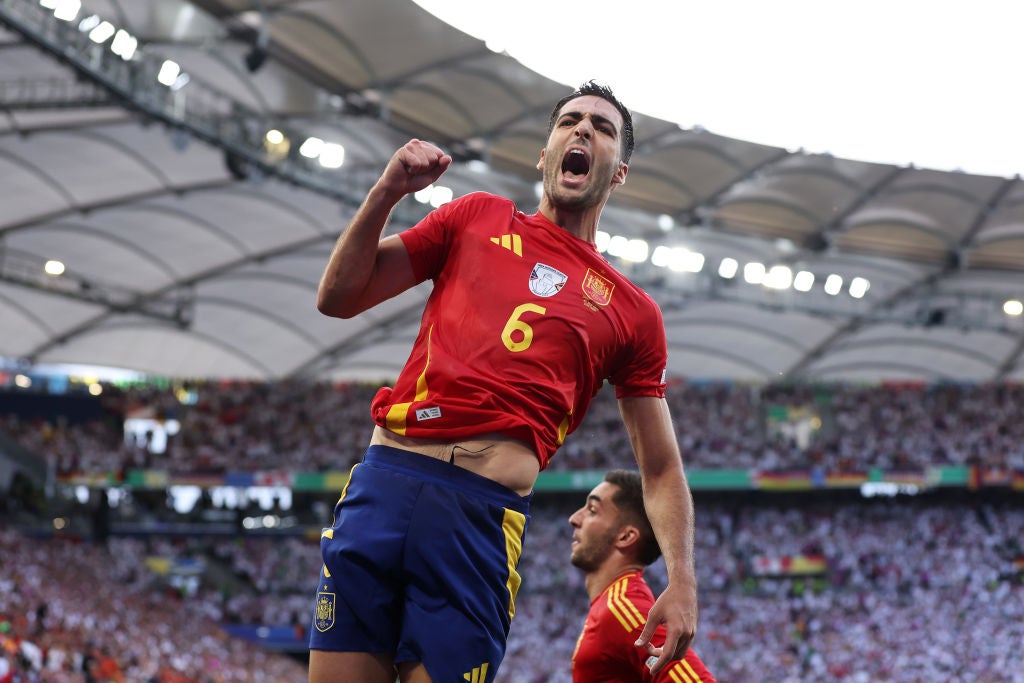
That largely correlates with the few teams you could say have been either convincing or captivating, in Spain, Germany, Austria, Georgia and Turkey. Spain put in at least three of the tournament’s great performances, along with Germany against Scotland and Switzerland over Italy.
The problem is that isn’t really enough out of 24 teams and 50 games so far. Such low numbers also reflect that this is the second lowest-scoring Euros this millennium, after the dismal 2016. The 2.28 goals per game have been a long way from the 2.78 of three years ago, although that feeds into some of the bigger factors.
For the most part, there has been a sense that something has been left off the pitch; as if teams haven’t really gone for it. It hasn’t helped that two of the most individually talented squads, England and France, have appeared to play within themselves in restrained tactics albeit the Three Lions improved somewhat in their semi-final, while the games involving Turkey, Georgia and Spain fostered a feeling of what Euro 2024 could have been.
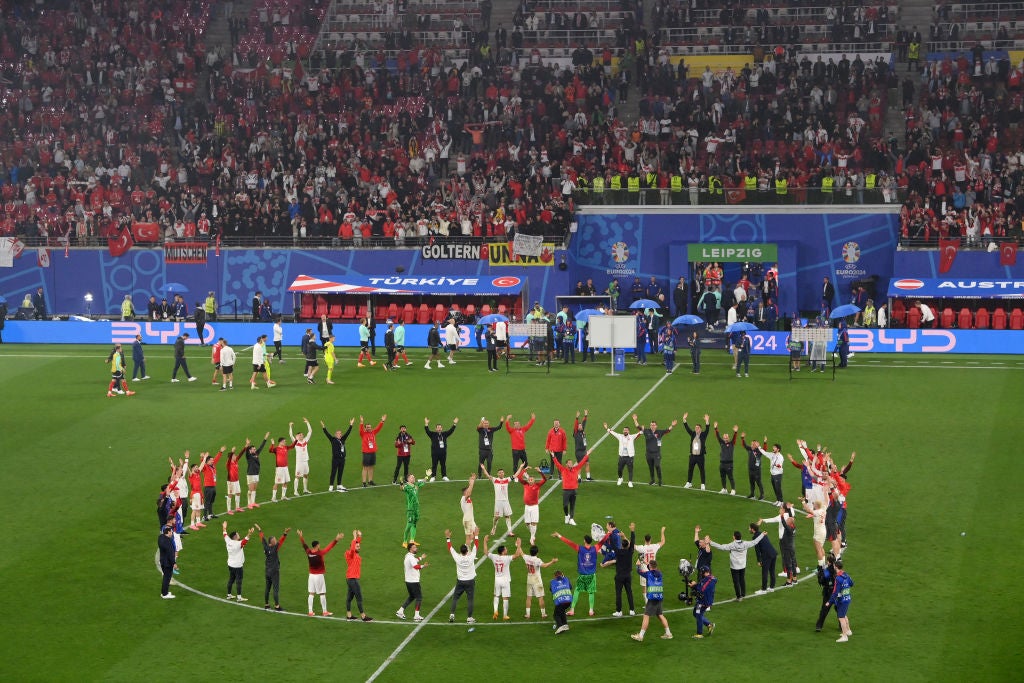
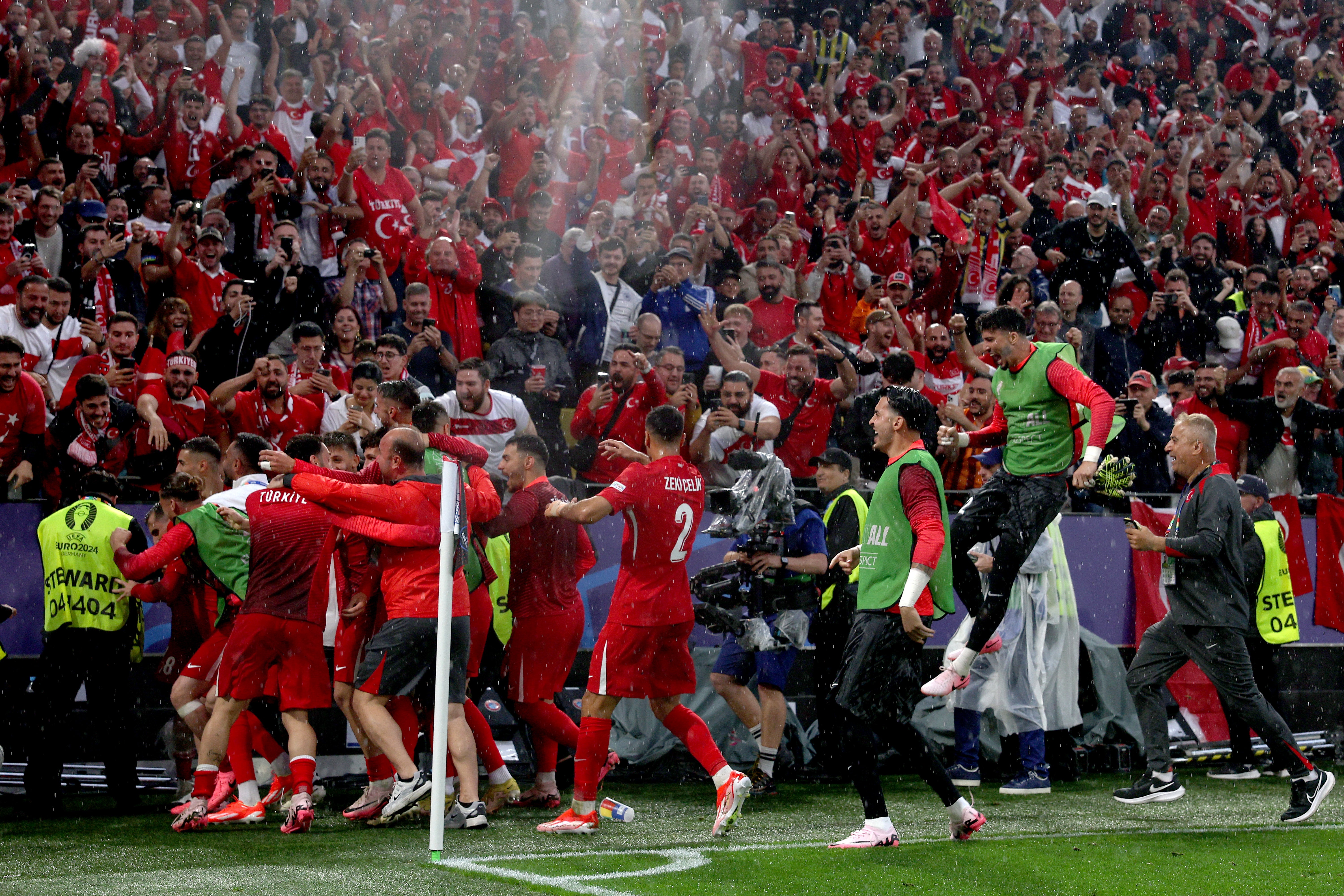
There are obvious reasons why that excitement hasn’t spread. One is basic fatigue. Too many of the biggest squads have come here having played too much football, with too few breaks. The main reason the 2022 World Cup had so much energetic football was because it came mid-season. International managers for once had players at their physical peaks rather than at seasonal lows. They could press and run with much more abandon.
Teams now have little option but to play more withdrawn football, even if Deschamps and Gareth Southgate might have made that choice anyway. Maybe that is the sudden benefit of Spain having so many Basque-based players, rather than stars from Barcelona or Real Madrid. Squads like Georgia’s meanwhile largely come from squads outside the elite.
The flip-side to that is that a 24-team tournament ensures at least a third of the sides aren’t of a particularly high quality. Even those that raise it for the group stage can’t really sustain that level, as we saw with an exhausted Georgia against Spain.
The last-16 stage similarly disrupts momentum. It is too much of a split, with the bigger sides able to absorb the extra demands in fairly dour narrow victories. That is all the more of an issue when football is just one continuous calendar of “big games”. They all need something more to stand out and get people off their feet.
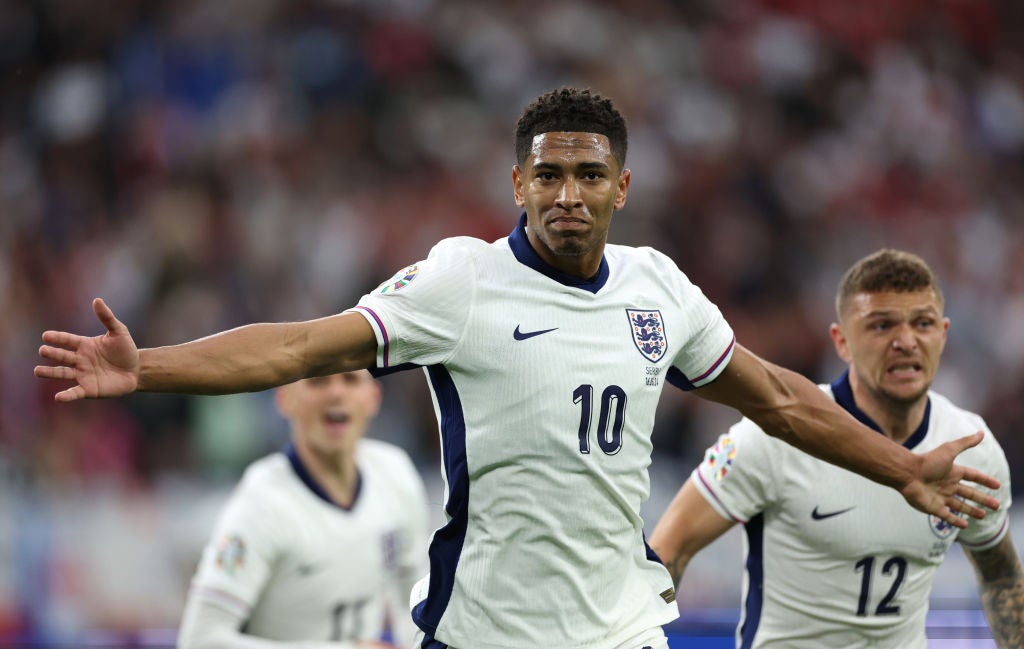
That extension also has a cost for the European Championships that still hasn’t been fully considered. It has lost its unique selling point of concentration of quality.
It isn’t a criticism to say the tournament can just never have the magic or grandeur of the World Cup because, well, it isn’t the World Cup. It isn’t as old or as all-encompassing, so doesn’t have the same depth of mythology or mystique. The World Cup means the world. It’s everything in football. That history infuses even the worst games with a richness, because of the greater meaning.
The European Championships never had this but it did have an intensity of excellence. There were fewer teams, and they had to come through the most exacting conditions. The heavyweights would all have another heavyweight in their group, if not more, and their matches really mattered. Some high-performing great teams have previously gone out in the group stage. This sense of peril continued all the way through the competition.
An irony is that, at Euro 2024, all of these factors have formed matches and storylines that do make international tournaments in other ways.
Prior to the semi-final, England’s games have mostly been terrible but the psychodrama created by the football has made them properly absorbing fixtures. You might prefer to watch a different style of football, but they’re impossible to take your eyes off. The same went for Portugal and the circus around Cristiano Ronaldo, as well as more tense elimination play-offs like Scotland 0-1 Hungary and other straight knock-outs.
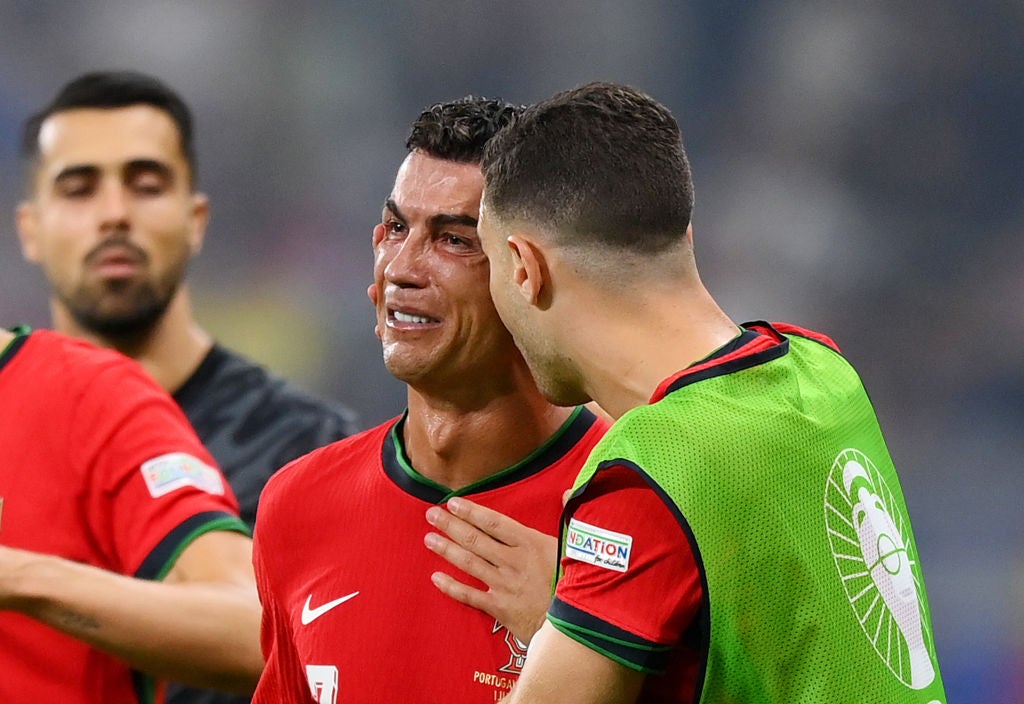
That does feed into the question of what is demanded or even expected of international tournaments.
Extremes of excellence like at Euro 2000 are the dream but the reality is usually tension, in part because of what the fixtures mean. Italia 90 isn’t remembered for its football but the storylines and the moments the storylines created. That’s what lives in the memory.
That is because, as Southgate astutely put it, “These are not normal football matches. These are national events, with huge pressure, with really young men in the middle of it.”
Is it any wonder games don’t reach wondrous heights? And yet their very tension makes everyone gather around to watch. These are shared experiences, where even the best teams are flawed.
In the modern game, it’s hard not to think this is better than one of the super clubs strangling lesser sides who operate with a fraction of their resources. The sad consequence for international football is that, even though it now has more virtues than the club game, it is still so overwhelmingly influenced by the club game’s demands.
It has meant this hasn’t been a particularly good tournament but it has still, in the most literal sense, had its moments.

